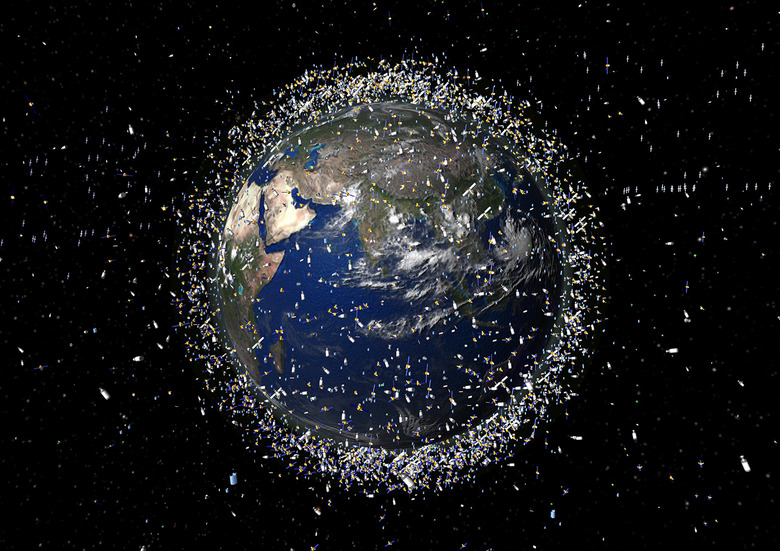China Wants To Clean Earth's Orbit By Blasting Space Junk With Giant Lasers
Mankind has done a remarkably efficient job of covering the Earth with garbage and clutter, so it should come as no surprise to learn that we're doing the same thing up in space. The Earth's orbit is full of old satellites that have been unused for years, as well as all sorts of other "space junk" that has accumulated since man first began exploring space. Other natural objects have collected in the Earth's orbit as well, drawn in by gravitational pull. There is much debate over how troublesome this space junk can be, but one thing is certain: The issue will only get worse if left unchecked.
There have been a number of different missions over the years with the goal of collecting this space junk and removing it from the Earth's orbit. Now, a group of scientists in China have offered what is easily the most exciting solution that has been proposed so far. They want to blast the junk in Earth's orbit with giant lasers, obliterating large objects so that their remnants are just tiny pieces that don't pose any threat.
Research in the past from Lockheed Martin and others has determined that the debris floating in Earth's orbit poses a serious threat to orbiting satellites that are currently in use. A number of different solutions have been posed, including the use of magnets to draw old satellites out of orbits, or even giant space nets that could be used to sweep and collect debris. None of these solutions are optimal, however.
So researchers at the Air Force Engineering University in China have published a paper titled "Impacts of orbital elements of space-based laser station on small scale space debris removal." As the name suggests, the scientists' paper explores the impact of using a giant laser to blow apart space debris.
"This paper investigated the impacts of orbital elements of space-based laser station on small scale space debris removal by numerical simulation," the researchers wrote in their abstract. "The orbital momentum models of small scale space debris and space-based laser station were established. The velocity variation of the space debris ablating by the space-based laser station was analyzed, and the orbit maneuver of the space debris irradiated by laser station was modeled and studied. The variations of orbital parameters of the space debris orbit respectively without and with irradiation of high-power pulsed laser were simulated and analyzed, and the impacts of the inclination and right ascension of ascending node (RAAN) of the space-based laser station on debris removal were analyzed and discussed."
They continued, "The simulation results show that, debris removal is affected by inclination and RAAN, and laser station with the same inclination and RAAN as debris has the highest removal efficiency. It provides necessary theoretical basis for the deployment of space-based laser station and the further application of space debris removal by using space-based laser."
Authors on the paper include QuanWen, Liwei Yang, Shanghong Zhao, Yingwu Fang, Yi Wang, and Rui Hou.
While experts believe that such a solution could be effective, there is also mounting concern surrounding the implications of building a "space-based laser station," as the paper proposes. This giant laser would in essence be a massive space weapon that would be controlled by a world superpower.
